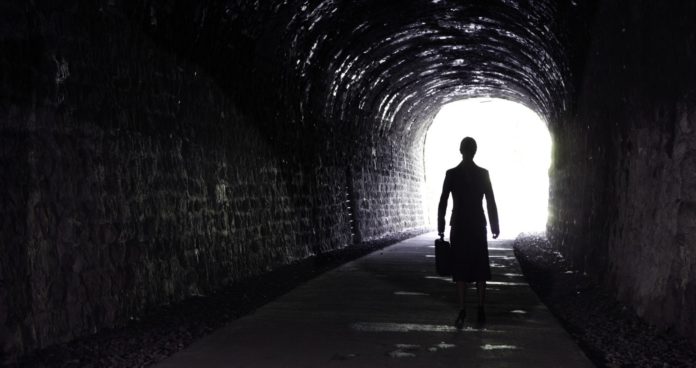
Consciousness may continue even after death, scientists now believe.
A team based in the UK has spent the last four years seeking out cardiac arrest patients to analyze their experiences, and found that almost 40 percent of survivors described having some form of “awareness” at a time when they were declared clinically dead.
Experts currently believe that the brain shuts down within 20 to 30 seconds of the heart stopping beating – and that it is not possible to be aware of anything at all once that has happened. But the scientists behind this latest study said they’ve found compelling evidence that patients experienced real events for up to three minutes after this had happened – and could recall them accurately once they had been resuscitated.
Dr. Sam Parnia, an assistant professor at the State University of New York and a former research fellow at the University of Southampton who led the research, said he previously thought that patients who described near-death experiences were only relating hallucinatory events.
One man, however, gave a “very credible” account of what was going on while doctors and nurses tried to bring him back to life – and says that he felt he was observing his resuscitation from the corner of the room. The 57-year-old reported hearing two beeps come from a machine that went off every three minutes — indicating that his conscious experience during the time he had no heartbeat lasted for around three minutes. According to the researchers, that suggests the man’s brain may not have shut down completely, even after his heart stopped.
“This is paradoxical, since the brain typically ceases functioning within 20-30 seconds of the heart stopping and doesn’t resume again until the heart has been restarted,” study co-author Dr. Sam Parnia, a professor of medicine at Stony Brook University and former research fellow at Southampton University, said in a written statement. “But in this case, conscious awareness appears to have continued for up to three minutes into the period when the heart wasn’t beating.”
The new study, published in the journal Resuscitation, involved 2,060 cardiac arrest patients from 15 hospitals in the UK, US and Austria, 360 of whom had been revived after their heart stopped beating.
Of those 360 patients, 39 percent exhibited some kind of ‘awareness’ during the time when they were clinically dead, while nine percent had experiences compatible with traditional definitions of a near-death experience and two percent exhibited full awareness with explicit recall of “seeing” and “hearing” events – or out-of-body experiences.
Although many could not recall specific details, some themes emerged. One in five said they had felt an unusual sense of peacefulness while nearly one third said time had slowed down or sped up. Some recalled seeing a bright light, such as a golden flash or the Sun shining. Others recounted feelings of fear or drowning or being dragged through deep water. Thirteen percent said they had felt separated from their bodies and the same number said their senses had been heightened.
The researchers believe even more patients in the study may have experienced mental activity following cardiac arrest but were unable to remember events during the episode as a result of brain injury or the use of sedative drugs. “Estimates have suggested that millions of people have had vivid experiences in relation to death but the scientific evidence has been ambiguous at best,” said Dr. Parnia. “Many people have assumed that these were hallucinations or illusions but they do seem to corresponded to actual events.”
This new study suggests that “the recalled experience surrounding death now merits further genuine investigation without prejudice,” added Dr. Parnia.
Other experts in the field are encouraged by the findings, saying they coincide with emerging ideas in resuscitation medicine about how the body dies, and could open up an exciting new line of research. “The researchers are to be congratulated on the completion of a fascinating study that will open the door to more extensive research into what happens when we die,” said Dr Jerry Nolan, editor-in-chief of the journal Resuscitation.
